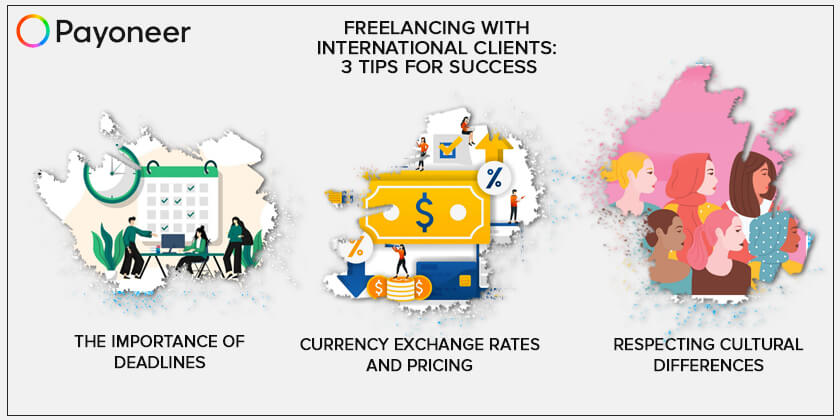
Freelancing With International Clients: 3 Tips for Success
Expanding your freelance client base to include international clients is a smart way to grow your business. Countless freelance jobs can be done remotely, and the speed and ease of communication today makes international work more feasible than ever.


Deciding to take your business international will help build your reputation on a larger stage, and help make your future more secure; however, there are a few things you should know in order to ensure success.
The Importance of Deadlines
If your client is several time zones away and expects a product or milestone by close of business on Thursday, do they mean “close of business” your time or their time? And what do they consider “close of business?” Date, time, and time zone should all be specified so that there are no misunderstandings. You should also assume, unless you’re specifically told otherwise, that deadlines are hard and fast. You may have clients who are flexible on deadlines, and some cultures are more ambiguous about deadlines than others. But assume your deadlines are fixed unless you’re told otherwise, or you could unwittingly damage your reputation.
Currency Exchange Rates and Pricing
Understand how your local currency trades with the currency in your international client’s country. Most US and European companies prefer to pay freelancers in their local currency (not the freelancers local currency), which can be difficult for international freelancers. With Payoneer, you can easily receive bank transfers from US and European companies by simply providing your client company with the US/EU receiving account details listed in your Payoneer online account. You can withdraw your funds anytime to your local bank in your local currency. Check out these blogs to learn more about the US Payment Service and EU Payment service.
Respecting Cultural Differences
In general, you should err on the side of more formal communications with international clients. Some cultures are very laid back, and these clients will likely make this clear as your business relationship develops. However, you should never assume a level of informality or familiarity with a client unless they take the lead. Methods of communication may vary from one international client to another. While email may work fine as a sole means of communication, be prepared should your client want to speak by phone or video conference or use live online chat. Make sure you have the appropriate software and necessary bandwidth to accommodate your clients’ preferred means of communication.
There has never been a better time for freelancers to take their services to the international market. Technology and communications systems allow people to take freelance jobs from anywhere in the world and deliver results to with speed and convenience.
Freelance marketplaces like Upwork, Elance and Freelancer allow for even more convenience with millions of international clients at your fingertips. Now, with your outstanding freelance work, great communication, and a payment platform that works for all parties, you can take your freelancing business to levels you may never have dreamed of.




